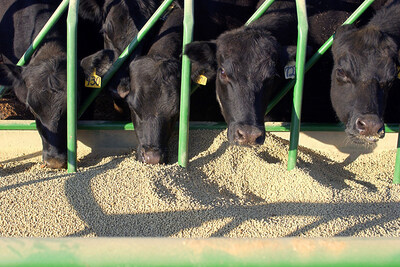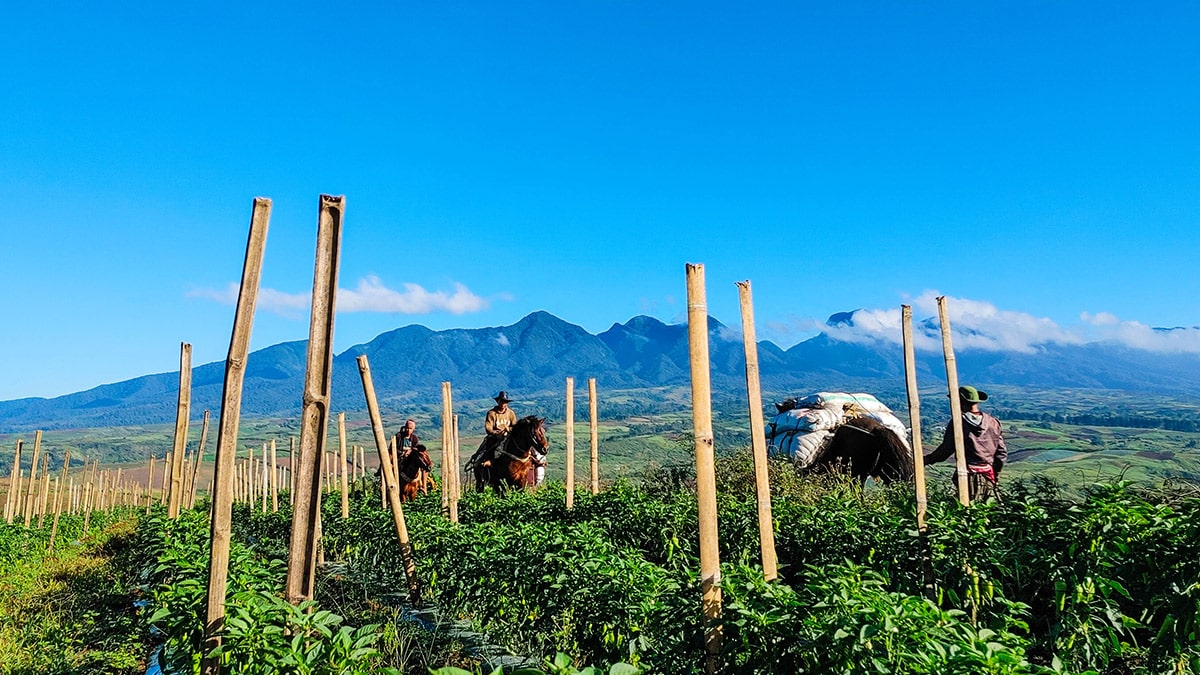
Policies should focus on reducing intensive livestock operations (ILOs) and changing eating habits. TORONTO , Nov. 20, 2024 /CNW/ - A groundbreaking report commissioned by World Animal Protection and completed by Navius Research, shows the significant role that policies promoting plant-based agriculture can play in reducing greenhouse gas emissions (GHG) and transforming Canada's food system.
Capping emissions from agriculture is key to reaching Canada's 2030 and 2050 climate goals. A first of its kind, the study examines policy measures that can steer the country toward a more sustainable, low-emission agricultural future. The research found an agriculture emissions cap that requires a 30% reduction in emissions by 2030 and a 50% reduction by 2050 (from 2005 levels) would be highly effective at reducing emissions.
This requirement would be less stringent than Canada's economy-wide emission reduction targets (40-45% reduction by 2030 and net zero by 2050). This policy alone would be enough to get Canada back on track to hit its 2030 and 2050 climate targets, while still allowing for sustainable economic growth in the sector. The research also found that while a subsidy for plant-based proteins alone would not be effective at shifting consumption patterns, it could be effective in combination with other efforts such as labeling schemes and education programs to promote the benefits of plant-based foods.
The report also indicates policies that limit the growth of the animal agriculture sector will help to reduce emissions. To support the development of a more humane and sustainable food system, efforts should focus on transitioning away from intensive livestock operations (ILOs) and supporting regional small-scale operations. This would not only reduce emissions but also increase Canada's regional food security - by having more food, more plant-based proteins and sustainable meat, produced closer to home.
QUOTES "The cost of inaction is simply too great when our 2030 and 2050 climate goals are becoming further and further out of reach. These proposals are cost effective and serve as an excellent opportunity to transform our food system in a way that supports small-scale farmers using or adopting humane and sustainable practices and ensures Canada is implementing its latest Food Guide recommendations." Lynn Kavanagh , Farming Campaign Manager for World Animal Protection Canada "We commend World Animal Protection's leadership in commissioning this report to model actionable strategies for policy makers to reduce the climate impact of our food system.
A shift to a plant-based system is crucial—not just to meet important climate goals, but to protect ecosystems, reduce biodiversity loss, and tackle public health issues like antibiotic resistance, chronic disease and pandemic risks. The time to act is now—for the future of our planet and all its inhabitants." Dr.
Zahra Kassam , Director/Founder of Plant-Based Canada "In recognition that all forms of greenhouse gas emissions must be urgently reduced, a plant-based diet is an essential first step that must be taken by humanity. This transition must be linked to education in schools, salary costs and generous subsidies for farmers to transition to plant-based agriculture, tax breaks for the food industry to develop appropriate foods especially plant protein foods and dairy substitutes." Dr.
David Jenkins , Professor of Nutritional Sciences at the University of Toronto and the Canada Research Chair in Nutrition and Metabolism . "This report shows that more plant-based agriculture and diets will be necessary ingredients in Canada's quest to reach its climate goals. Specific, practical, analytical, bold, and ultimately optimistic, the report outlines the kinds of real policy steps that would transform food systems while helping farmers, consumers, animals and ecosystems.
The report builds on the evidence I've seen emerge over decades that we can develop alternatives to mass-volume animal agriculture and meaty diets, support environments and justice, and express our best values." Eleanor Boyle , PhD, Educator and author of High Steaks: Why and How to Eat Less Meat (New Society 2012), Mobilize Food: Wartime Inspiration for Environmental Victory Today (FriesenPress 2022) "As a farmer dedicated to sustainability, I see the urgent need for our agricultural sector to adapt to climate change. The Navius Research report clearly shows that transitioning to increased plant-based agriculture is essential for reducing greenhouse gas emissions and supporting local economies.
By promoting plant-based food production, limiting animal agriculture to small scale, higher welfare farming systems, and moving away from intensive livestock operations, we can protect our land and livelihoods. It's time to embrace innovative practices that ensure a sustainable food system for all." Bill Massey , Manitoba Pig Farmer QUICK FACTS Emissions from agriculture continue to be the largest growth outside of oil and gas in Canada's economy.
According to the Commissioner of the Environment and Sustainable Development's report in 2024, the Government of Canada continues to lack any meaningful strategy to reduce agriculture emissions to meet its 2030 and 2050 climate targets. An agriculture emissions cap that requires a 30% reduction in emissions by 2030 and a 50% reduction by 2050 (from 2005 levels) would lead to 29 Mt CO2e reduction in Canada's emissions in 2030 and an 89 Mt CO2e reduction in 2050. That's equivalent to taking more than 8 million cars off the road by 2030 and more than 27 million cars off the road by 2050.
About World Animal Protection Canada: World Animal Protection is an international animal welfare charity. For more than 70 years, we have been working to protect animals from cruelty through practical, evidenced-based and sustainable solutions that help people and animals alike. We have offices in 12 countries including China , Australia , India , Kenya , Brazil , the U.
S. and U.K.
We have General Consultative Status with the UN and are members of Canada's National Farm Animal Care Council (NFACC) and Climate Action Network. We founded the Global Ghost Gear Initiative (GGGI), of which Canada is a member. About Navius Research Inc: Navius Research Inc.
is an independent and non-partisan consultancy based in Vancouver . We operate proprietary energy- economy modeling software designed to quantify the impacts of climate change mitigation policy on greenhouse gas emissions and the economy. We have been active in this field since 2008 and have become one of Canada's leading experts in modeling the impacts of energy and climate policy.
Our analytical framework is used by clients across the country to inform energy and greenhouse gas abatement strategy. View the full report . View the Executive Summary .
SOURCE World Animal Protection View original content to download multimedia: http://www.newswire.ca/en/releases/archive/November2024/20/c3741.
html © 2024 Benzinga.com. Benzinga does not provide investment advice.
All rights reserved..














